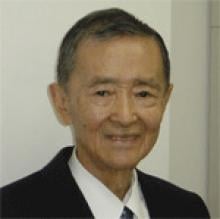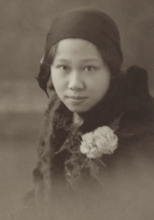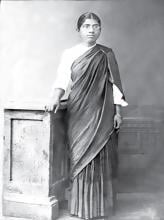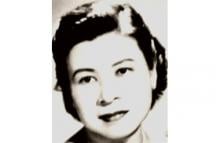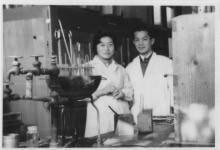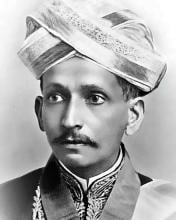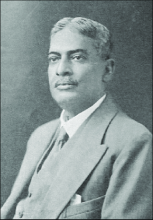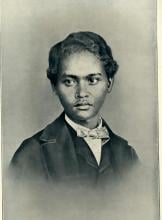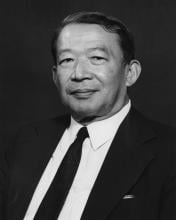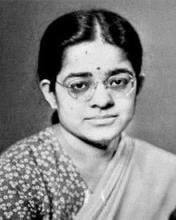People
News
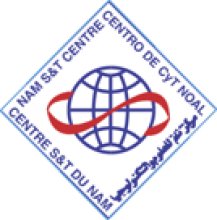
08 Nov 2006
The social and economic development of a country is closely linked with the understanding and application of science and technology by its people. Science centres and museums play a vital role in communicating basic scientific information to the people and help them make informed choices.

07 Nov 2006
IUBAT practices a seed-model of KBAD providing repayable loans to students enabling them to break out of poverty trap which if extended in wider scale in any society, could lead to community self reliance.

06 Nov 2006
The Environment is a major concern in many Asian countries. ResearchSEA is launching Focus on The Environment to highlight the experts and research related to the Environment.

03 Nov 2006
More than one hundred Nobel laureates have written to Colonel Muammar al-Gaddafi to express their concern over the death-penalty case of 5 Bulgarian nurses, and a Palestinian doctor, accused of deliberately infecting more than 400 children with HIV in 1998.
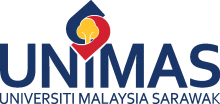
02 Nov 2006
The eBario project wins gold medal at Commonwealth Innovation Award. The research project uses innovative application of ICTs with the goal of continually sustaining social and economic programs in a rural community in Sarawak which does not have the basic amenities such as electricity, water and telecommunications.

01 Nov 2006
Tokyo University of Science (Chairperson, Board of Governors - Takeyo Tsukamoto) was awarded an AA- rating by the reputed American credit ratings company 'Standard and Poors'. AA- is fourth from top in long-term credit rating rankings. The outlook on this rating is stable.

01 Nov 2006
The Tokyo University of Science entered into Agreement of Cooperation with the University of California, Santa Cruz, USA, on September 1, 2006.

01 Nov 2006
The discussion focused on math and science teachers for primary and secondary education. The U.S. is facing problems due to the declining quality of teachers. This visit was to help find measures to improve the situation by discussing with professors who educate math and science teachers in the Japanese education system.

30 Oct 2006
Many meaningful milestones in the human history were in the form of existentialist struggles marked by violence and wars. Civilizations are built with the blood of warriors and the sweat of the laborers. History shows us that before stability is attained, countless innocent lives are lost and personal and public properties are destroyed.

29 Oct 2006
It took three years for the US to seriously consider alternate plans when their main plank fell apart. In planning an alternate approach now, can the US be sure that it has a workable plan or will it wait for another three years to decide if there is yet another way out of the likely mess?

22 Oct 2006
More important than the elections is establishing an electoral culture, and this cannot be fulfilled through spectators. It has to be achieved through actual participation, not necessarily in the highest public domain; it could start at the level of local or municipal councils

18 Oct 2006
Science issues could play a key role in the US mid-term elections, says a news feature in this week’s Nature. Reporters have teamed up to scrutinize races across the country and report how two topics in particular – stem cells and energy – are being used on the campaign trail.

18 Oct 2006
The Arab Gulf has begun to build ties with a diverse group, including the European Union, Turkey, and particularly Asia. By linking the economic interests of these countries and regions to the security of the Gulf, the Arab Gulf is able to build stronger partnership, in addition to establishing a role for itself in the international arena.

16 Oct 2006
This study found that group-owned newspapers aim to maximize profit by cutting the number of reporters, reducing the amount of non-advertising space in the newspaper, and cutting advertising space.

15 Oct 2006
North Korea's nuclear test should be seen from a broader perspective: the lack of deterrent mechanisms is encouraging developing countries to pursue their own nuclear programs in order to improve their strategic positions.

12 Oct 2006
The International Center for Agricultural Research in the Dry Areas (ICARDA) is seeking a Human Resources Manager, who will be based at its headquarters in Aleppo, Syria.

10 Oct 2006
Suggestions that Europe is unable to offer concrete solutions to the region's problems indicate a misunderstanding of the actual nature of the challenge. Europe cannot replace the US in the Gulf but it can certainly provide alternatives and incentives where the current US approach falls desperately short.

10 Oct 2006
This paper analyses the role of journalism in Japan and uses a high profile group bullying murder case as a case study to illustrate the state of journalism in Japan

10 Oct 2006
According to 2004 statistics, local films in Japan took in an estimated 35 % of the total revenue. By contrast the same year, Canadian feature films earned 4.3 % in Canada. This figure shows the big difference between Canada and Japan.

08 Oct 2006
The co-riparians of the Jordan River Basin (Lebanon, Syria, Israel, the occupied Palestinian territories and Jordan) suffer differing degrees of water stress. The quantification and attainment of their water rights is thus an important topic, especially as the demand for water is growing throughout the region as a whole.

27 Sep 2006
The East Mediterranean region is part of the Middle East and North Africa region (MENA), which is recognized as one of the driest and most water scarce regions in the world. This paper described the roots of water conflict over the shared water resources particularly in Turkey, Iraq, Syria, Lebanon, Jordan, Palestine and Israel.

24 Sep 2006
The most constructive offer that Iran can make at this stage is not by lending a proactive hand, but by not extending a hand at all. The magic potion that Iraq urgently needs is an immediate end to Iran's interference.

22 Sep 2006
The most noteworthy aspect of Al Qaeda in the post 9-11 environment has been its broadened appeal among the Muslim community. Five years after 9-11, we face a greater threat than at 9-11. What are the successes and failures of that campaign?

21 Sep 2006
To people around the world, the coup de’tat in Thailand on September 20, 2006, was a big shock. In contrast, to many Thais, especially those who are over 25 years or older, the coup was not a big scare to them. Since, Thailand became a democracy country 73 years ago, Thailand experienced several bloodless coups.

21 Sep 2006
As the US ratcheted up the rhetoric about "Islamic extremism" and the "continuing terrorist threat (still) confronting the nation" while commemorating the fifth anniversary of the 9/11 attacks, it is worth noting how Washington invited trouble due to its insensitive policies in the Middle East and shortcomings of its intelligence units.

20 Sep 2006
IDR aims to be the information center for major conflict in Thailand and internationally, to conduct research and management training in areas of natural resources, environment and public policy dispute cases.

18 Sep 2006
When the decreasing availability of freshwater is combined with the extent to which it is shared internationally, the potential for disputes between countries over this precious resource becomes obvious. How do states deal with these disputes?

14 Sep 2006
The Arab countries are surrounded by countries with nuclear capabilities. Israel, Pakistan, India and, sooner or later, Iran. It is in this context that the GCC secretary-general issued a wake-up call to the "Arab Nation" to adopt a new regional strategy on the nuclear issue by abandoning the current zero nuclear option

10 Sep 2006
Oil constitutes more than 90 percent of all transport fuels and 35 percent of the world’s primary energy demand – no doubt, the world economy is addicted to oil and the Gulf countries have what everybody is longing for: They possess a breathtaking 61 percent of worldwide reserves and contribute 30 percent of production.

10 Sep 2006
The main point of departure for this study is that since the 1980s, changes in the international oil market have greatly lessened European dependence on oil supplies from the Gulf. The security of oil supplies became less pressing compared to maintaining stability in the Mediterranean.
Researchers
Sorry, no researchers coming up for this topic.
- « first
- ‹ previous
- 1
- 2
- 3
Giants in history
Michiaki Takahashi (17 February 1928 – 16 December 2013) was a Japanese virologist who developed the first chickenpox vaccine.
Maggie Lim (5 January 1913 – November 1995) was a Singaporean physician who promoted family planning and expanded the access to clinics to improve the quality of life for mothers and children in Singapore’s early days.
The founder of the Adyar Cancer Institute in India, Muthulakshmi Reddy (30 July 1886 – 22 July 1968), fought to uplift women and girls from impoverished situations.
Through her iconic stories featuring fictional scenes from the history of the Philippines, language teacher and academic Genoveva Matute (3 January 1915 – 21 March 2009) helped strengthen the Filipino identity.
Tsuneko (7 June 1933) and Reiji Okazaki (8 October 1930 – 1 August 1975) were a Japanese couple who discovered Okazaki fragments – short sequences of DNA that are synthesized during DNA replication and linked together to form a continuous strand.
Sir Mokshagundam Srinivasa Shastry Vishveshwarayya (15 September 1860 – 14 April 1962) is widely regarded as India’s most outstanding engineer. In a career that spanned almost his entire life, Vishveshwarayya played a pivotal role in several engineering projects, including designing the Krishnarajasagara dam that is still the source of irrigation and drinking water for parts of Karnataka today.
Indian scientist and physician Upendranath Brahmachari (19 December 1873–6 February 1946) is best known for creating a drug called Urea Stibamine, used to safely and reliably treat visceral leishmaniasis (or Kala-azar), a severe infection caused by the Leishmania parasite.
Little is known about Ali, a teenager from Sarawak, Malaysia, who was chief assistant to the famous naturalist Alfred Wallace. Most of what is known comes from Wallace’s writings. Ali accompanied Wallace on expeditions throughout the Malay Archipelago from December 1855 to February 1862.
U Hla Myint (1920 – 2017) was a celebrated economist from Myanmar. Considered a prodigy, he was admitted to Rangoon University to study economics when he was just 14 years old. He went on to earn a Ph.D. at the London School of Economics (LSE).
Rajeshwari Chatterjee (24 January 1922 – 3 September 2010) was the first female engineer from Karnataka in India.


